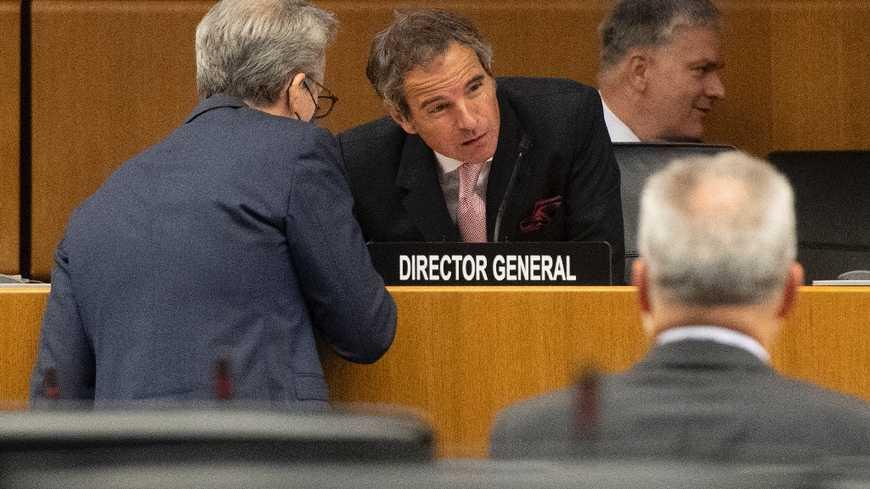Iran warns against UN nuclear watchdog resolution

Iran criticised on Tuesday a plan to put forward a resolution at a meeting of the UN's nuclear watchdog urging the country to allow access to two disputed sites, Al-Monitor reports.
European states are expected to put the resolution before the International Atomic Energy Agency's (IAEA) board of governors' meeting this week.
"Introduction of this resolution aiming to call on Iran to cooperate with the Agency... is disappointing and absolutely counterproductive," said Kazem Gharib Abadi, Iran's UN ambassador in Vienna.
Diplomats say the resolution will call on Iran to provide access to two locations where past nuclear activity may have occurred -- sites to which the IAEA has been trying to gain access for months.
At the start of this week's meeting on Monday, IAEA Director General Rafael Grossi repeated his appeal to Iran to "cooperate immediately and fully" and grant access.
Even though the sites in question are not thought to be directly relevant to Iran's current nuclear programme, the agency says it needs to know if activities going back almost two decades have been properly declared and all materials accounted for.
But in Tuesday's statement, Gharib Abadi warned that if the resolution was adopted "Iran would have no choice but to take appropriate measures, the consequences of which would be upon the sponsors of such political and destructive approaches".
He did not specify what these measures would be.
'Complication and difficulties'
The IAEA's board of governors hasn't passed a resolution critical of Iran since 2012.
While it would be largely symbolic in character, it could be a prelude for the dispute being referred to the UN Security Council, the only UN body that can impose sanctions.
Gharib Abadi's statement argued that the IAEA's access requests were based on allegations from Iran's arch-enemy Israel.
Additional information provided by the IAEA in support of its requests "were merely some commercial satellite imageries that contained no convincing underlying reason" to provide access, he added.
Despite the row over the sites, the IAEA says it still has the access it needs to Iran's nuclear facilities to monitor its current activities, as the agency is mandated to do under the landmark deal between Iran and world powers reached in 2015.
However, the deal has been unravelling since US President Donald Trump withdrew from it two years ago and went on to re-impose swingeing economic sanctions on Iran.
In retaliation Iran has been slowly abandoning limits on its activities set out under the deal, including on the size and enrichment level of its uranium stockpile.
Iran has accused the European parties to the deal -- France, the UK and Germany -- of not doing enough to mitigate the impact of American sanctions.
In his statement Gharib Abadi hinted that pressing ahead with the resolution could cause "complication and difficulties" for the future of the 2015 accord.
 Latest news
Latest news Latest news
Latest newsGreece Plans to Exclude Turkiye from Future Defense Contracts
20.Feb.2026
U.S.-Based Mars Launches Major Investment Project in Kazakhstan
20.Feb.2026
Parliamentary Elections 2026 in Armenia as a Geopolitical Referendum
20.Feb.2026
Russia and Ukraine Fail to Reach Agreement in Geneva
19.Feb.2026
The South Caucasus in U.S. Foreign Policy: Implications of High-Level Visits for Russian and Chinese Regional Aspirations
18.Feb.2026
Ukraine Imposes Personal Sanctions on Belarusian President Alexander Lukashenko
18.Feb.2026
72% Against the Authorities: Economic Dissatisfaction Hits Record Levels in Turkiye
17.Feb.2026
Bulgaria Strengthens Defense: First American Stryker Vehicles Delivered
17.Feb.2026
Moscow Criticizes Plans to Build a U.S.-Backed Nuclear Power Plant in Armenia
16.Feb.2026
Washington expects Tbilisi to strengthen ties amid regional changes
15.Feb.2026

 28 Feb 2026
28 Feb 2026









